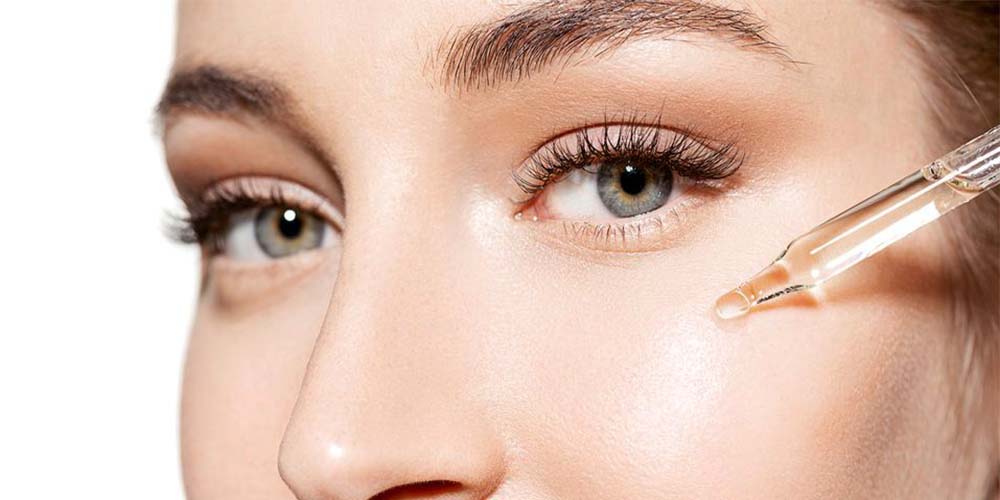We do shipping of our products WORLDWIDE.
ALL OUR PRODUCTS ARE PACKED BY VISUALLY HANDICAPPED
100% NATURAL PLANT SCENT ESSENTIAL OILS

Hyaluronic acid. To the less beauty-savvy, it may sound like something you don’t want to put anywhere near your face (we all took chemistry lessons at school, just saying…).
But, what if we told you that hyaluronic acid actually holds the key to smooth, flawless and hydrated skin?
In fact, our own skin cells actually produce hyaluronic acid naturally in a bid to maintain moisture levels. But, thanks to pesky aging and environmental aggressors, to name just a few things flung at our faces on a daily basis, those levels tend to take a bit of a dip.
‘HA (hyaluronic acid) is critical in maintaining skin hydration,’ says Aesthetic Doctor, Dr. Maryam Zamani, ‘although it can be degraded by free radical mechanisms caused by things like UV exposure. Topically applied, it helps to hydrate the skin and maintain this hydration as a humectant.’
Glossary: Humectant (hyoo/meck/tant): a substance used to reduce the loss of moisture.
Sounds pretty great, right? Well, here’s everything you need to know about the hero skincare ingredient that is hyaluronic acid and exactly why you should be slotting it into your regular beautifying routine. That is if you haven’t already.
‘Hyaluronic Acid (which you might find hiding on the labels of some of your skincare products as HA), is naturally occurring in the human body,’ says Dia Foley of Indeed Laboratories. The substance works as a magnet for moisture, helping your cells retain as much of it as possible so that your skin feels and appears hydrated, plump, and healthy.
Now for the science-y bit. Just a single gram of hyaluronic acid has the impressive ability to hold up to six (yep, six) liters of water. Add to that, a super-smart ability to regulate that moisture within the cells, so as not to drown them and you’ve got one genius ingredient.
If your skin isn’t already lapping up the benefits of hyaluronic acid, this is why it should be:
1. If skin is sufficiently hydrated, it feels super-soft, plump and pillowy and looks so much more radiant. See ya, Insta-filter.
2. When skin is hydrated, lines and wrinkles (even the deeper ones) appear diminished, so it is a great ingredient for those with ageing skin who are desperate to cling on to their youthful perkiness.
3. It works wonders on everyone. ‘Hyaluronic acid works for any skin type, says Dia Foley, ‘even sensitive or breakout-prone skin, as well as those with an oily complexion.’
4. Recent research suggests that hyaluronic acid also has antioxidant properties, which means it can act as a shield against free radicals we aren’t in control of, like pollution and other aggressors.
Of course!
Don’t be put off by the name, because, unlike some acids, hyaluronic acid doesn’t strip the skin or cause any downtime when applied topically.
‘It is different than other acids which are used to exfoliate,’ mentions Dr. Zamani. A natural and powerful moisture-binding substance, it delivers gentle hydration to where your skin needs it the most.
You can use hyaluronic acid if you’re worried about aging:
As we age, the amount of hyaluronic acid our skin cells produce begins to lessen and cell turnover can become sluggish – this is is when lines, wrinkles, and rough texture tend to make their debut.
So, if you want to maintain your youthful glow, incorporating hyaluronic acid into your anti-ageing skincare routine is definitely a good idea.
‘Skin moisture can drop significantly as we age, says Indeed Laboratories’ Dia, something which Dr. Zamani seconds. ‘This makes the skin lose elasticity and expose the signs of aging on the skin. But hyaluronic acid acts as the ultimate drink for your skin,’ Dia says.
Recent Comments